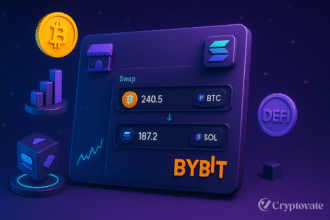– Ad –
| Getting your Trinity Audio player ready... |
South Korea, a global hub for cryptocurrency enthusiasm, is poised to transform its financial landscape with a groundbreaking roadmap to approve spot crypto exchange-traded funds (ETFs) in the second half of 2025. Once cautious about digital assets, the nation’s Financial Services Commission (FSC) has unveiled a progressive plan that could redefine its position in the global crypto market. This shift, driven by President Lee Jae-myung’s crypto-friendly policies, marks a departure from past restrictions and signals a new era of financial innovation.
A New Era for Crypto in South Korea
In a significant pivot, the FSC has submitted a detailed roadmap to the Presidential Committee on Policy Planning, outlining the legalization of spot crypto ETFs by late 2025. This move reverses a previous ban rooted in concerns over financial instability and the speculative nature of cryptocurrencies. The roadmap includes robust regulations for custody, trading, pricing, and investor protection, ensuring a secure framework for retail and institutional investors. Additionally, the plan proposes legalizing Korean won-based stablecoins to curb capital outflows and strengthen financial sovereignty.
South Korea’s crypto market is one of the largest globally, with digital asset holdings valued at approximately $75.7 billion as of late 2024. The country’s retail investors, known for their enthusiasm for crypto trading, stand to benefit from regulated investment vehicles like ETFs. By aligning with global standards—seen in the success of spot Bitcoin ETFs in the U.S., Canada, and Europe—South Korea aims to cement its role as a regional leader in digital finance.
Key Features of the 2025 Roadmap
The FSC’s roadmap is comprehensive, addressing critical aspects of crypto regulation:
- Spot Crypto ETFs: The plan outlines phased approvals for ETFs, enabling investors to gain exposure to cryptocurrencies without directly holding them.
- Stablecoin Regulation: Legalizing won-based stablecoins aims to stabilize the market and reduce reliance on foreign currencies.
- Investor Protections: Strict anti-money laundering (AML) measures and transparent fee structures for exchanges will enhance market integrity.
- Market Oversight: Strict penalties, including permanent bans and substantial fines, will discourage market manipulation and fraudulent activities.
The roadmap also explores extending trading hours on the Korea Exchange and allowing institutional crypto trading, further integrating digital assets into the mainstream financial system.
Challenges and Considerations
While the roadmap has sparked excitement, challenges remain. The Bank of Korea has expressed concerns about non-bank-issued stablecoins potentially disrupting monetary policy. Legislative review and stakeholder consultations will play a crucial role in finalizing the plan. The FSC has emphasized that the roadmap is not set in stone, and adjustments may be made to balance innovation with financial stability.
The Democratic Party, led by President Lee, supports the initiative, aligning with campaign promises to foster a crypto-friendly environment. However, regulatory hurdles and public skepticism about crypto’s volatility could slow progress. The FSC’s focus on investor education and transparent regulations aims to mitigate these concerns and build trust in the market.
Global Context and Future Outlook
South Korea’s move comes at a time when global markets are embracing crypto ETFs. The U.S. saw significant inflows into spot Bitcoin ETFs in 2024, setting a precedent for regulated crypto investment products. By following suit, South Korea could attract both domestic and international investors, boosting its financial sector. The roadmap’s emphasis on won-based stablecoins also positions the country to compete with global stablecoin issuers like Tether and Circle.
Looking ahead, the success of the roadmap will depend on effective implementation and regulatory clarity. If executed well, South Korea could become a model for other nations seeking to balance crypto innovation with investor safety. The second half of 2025 will be a pivotal period, as the FSC aims to roll out these reforms and establish a thriving, regulated crypto ecosystem.
Also Read: World Vision Korea Makes History: First Non-Profit to Trade ETH on Upbit in South Korea
Conclusion
South Korea’s 2025 crypto ETF roadmap is a bold step toward embracing digital assets while prioritizing investor protection. From reversing past bans to introducing won-based stablecoins, the FSC’s plan reflects a commitment to innovation and global competitiveness. As the nation prepares for this financial transformation, all eyes will be on 2025 to see if South Korea can turn its crypto ambitions into reality.
FAQs
What are spot crypto ETFs?
Spot crypto ETFs are investment funds that track the real-time price of cryptocurrencies like Bitcoin or Ethereum, allowing investors to gain exposure without directly owning the assets.
When will South Korea approve spot crypto ETFs?
The Financial Services Commission has proposed approving spot crypto ETFs in the second half of 2025, pending legislative review.
Why is South Korea legalizing won-based stablecoins?
Won-based stablecoins aim to reduce capital outflows, stabilize the crypto market, and strengthen South Korea’s financial sovereignty.
How will the roadmap protect investors?
The roadmap includes strict AML measures, transparent fee structures, and penalties for market misconduct to ensure investor safety and market integrity.

















